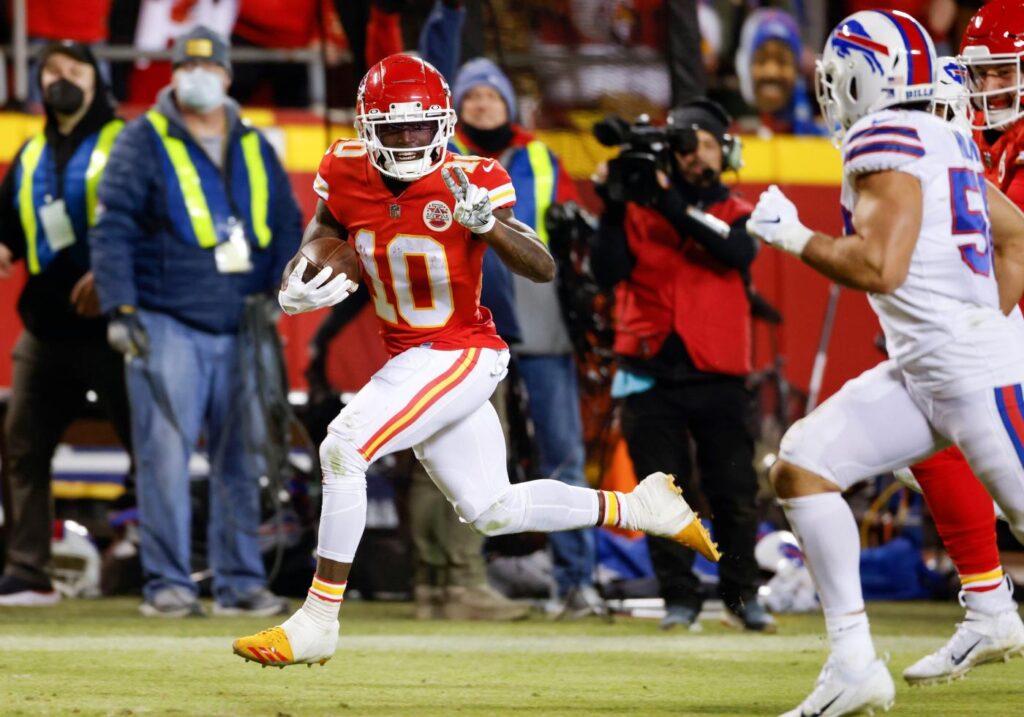
A team will no longer get eliminated from an NFL postseason the way the Buffalo Bills did at the Kansas City Chiefs in January’s divisional round playoff game.
The league passed a rule change on Tuesday at the NFL annual meeting at The Breakers that guarantees, for postseason games, both teams will receive at least one possession in overtime. The rule change does not affect regular-season games, where overtime rules remain the same.
The NFL adopted the proposal made by the Indianapolis Colts and Philadelphia Eagles, but amended it to only be implemented in the playoffs. The league withdrew the alternate proposal made by the Tennessee Titans, in which a game can also end if the first team to possess the ball in overtime scores a touchdown that is followed by a successful two-point conversion.
According to Sports Illustrated, the Dolphins were one of three teams, along with the Cincinnati Bengals and Minnesota Vikings, that voted against the rule change.
In January’s Chiefs-Bills game, the Chiefs won the overtime coin toss and eliminated the Bills by scoring a touchdown, thrown by Patrick Mahomes to tight end Travis Kelce, without ever having to play defense in overtime. The two teams arrived at overtime after they combined for 25 points in the final two minutes of regulation. The Chiefs converted a game-tying field goal to send it into the extra period, despite receiving the ball with 13 seconds remaining.
NFL competition committee chairman Rich McKay cited statistics that showed, since the NFL’s overtime rules changed in 2010, the team winning the overtime coin toss was 10-2, including seven wins that occurred on first-drive touchdowns.
“That data was compelling to us and to the league,” McKay said. “[We decided to] only change the rule in the postseason, which is where our problem principally lied, as far as having that first-possession touchdown.”
If both teams remain tied after the two have had a possession, overtime then becomes sudden death. McKay said he believes teams may feel motivated to go for two as the second team scoring. The time on the clock in overtime will not factor into a team’s second possession, allowing it a full possession regardless of time remaining after the first team scores.
The 2010 overtime rule change first made it so that the team possessing the ball first in overtime had to score a touchdown to instantly win, countering the league’s place-kicking improvement that allowed for overtime games to end on a long field goal without both teams playing offense.
The NFL also reviewed taunting penalties, citing the importance of sportsmanship and example set for college football and lower levels.
According to executive vice president Troy Vincent, new Dolphins receiver Tyreek Hill’s peace sign as he scored a touchdown against the Bills for the Chiefs in the aforementioned playoff game should have been called taunting.
The competition committee also made permanent last year’s rule change that limited receiving teams on onside-kick attempts to line up with nine players in the setup zone. Originally intended for a one-season trial in 2021, the alteration resulted in an increase from a 7.8 percent onside kick recovery rate to 13.5, which is historically the rate onside kicks are recovered in the NFL after a dropoff over the three previous seasons.
()
